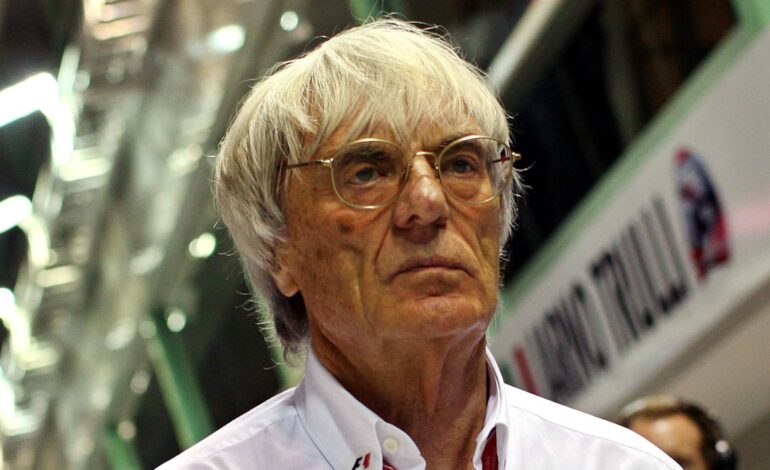Bernie Ecclestone Questions Germany’s Absence from F1 Calendar

Former Formula 1 chief Bernie Ecclestone has expressed confusion over the absence of the German Grand Prix from the championship calendar. The last race held in Germany took place in 2019 at the Hockenheim circuit, with the country only hosting the Eiffel Grand Prix at the Nurburgring during the pandemic-affected 2020 season. Despite Germany’s storied motorsport history, it remains excluded from the current schedule, and a return appears unlikely in the near future.
The Formula 1 calendar has expanded significantly over the past decade, with teams and drivers now participating in a record 24 races per season. The surge in global interest has led F1 to explore hosting events in various countries, including ongoing discussions with Thailand and South Africa. With additional nations vying for inclusion, the competition for race slots has intensified.
Future Changes and Ecclestone’s Concerns
In 2026, the F1 calendar will introduce a new event at the Madring in Madrid, Spain, marking the first new race since the Las Vegas Grand Prix debuted in 2023. Furthermore, beginning in 2027, a rotational format will allow more than just the 24 current venues to host races. The Belgian Grand Prix is already confirmed as a biannual event, which reflects F1’s effort to diversify its locations.
Despite these developments, Ecclestone has voiced his surprise at Germany’s ongoing exclusion. In an interview with the German publication Sport.de, he stated, “I often think about it and I don’t understand it. It’s just strange that it’s not made possible. No one would oppose it, except maybe a few people in Germany itself. It’s just a matter of money. If someone were there with the right funding, it would work.”
Germany’s legacy in Formula 1 is significant, with iconic tracks like the Hockenheimring and Nurburgring Nordschleife historically hosting thrilling races. The country saw a notable rise in popularity during the era of Michael Schumacher, who won five consecutive world championships with Ferrari from 2000 to 2004.
As F1 continues to evolve, the absence of German races raises questions about the sport’s commitment to its traditional fan bases. The landscape is changing rapidly, with new venues emerging and established races being reconsidered. While the allure of fresh locations is undeniable, the rich motorsport culture of Germany remains a compelling case for revival on the Formula 1 calendar.
Fans and stakeholders alike will be watching closely to see whether Germany can reclaim its place in the world of F1 racing.






